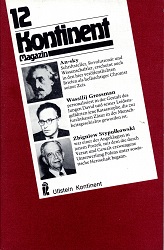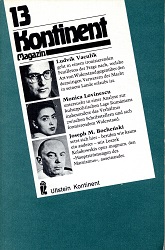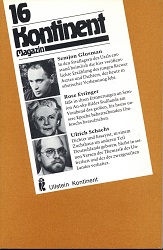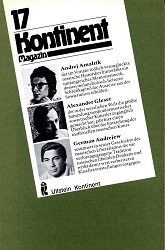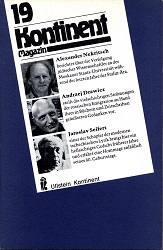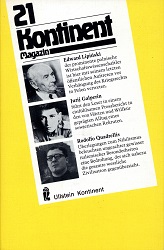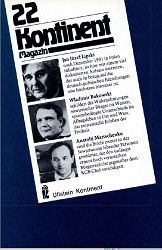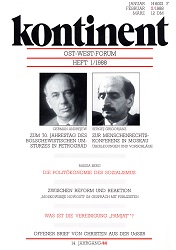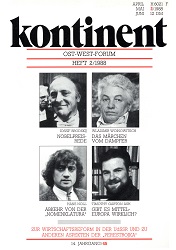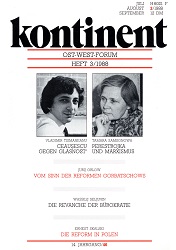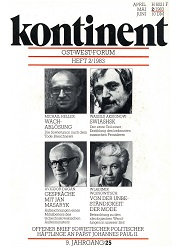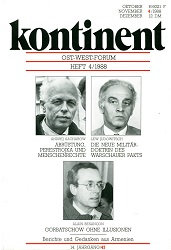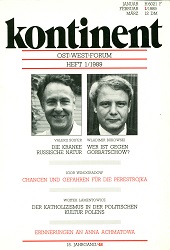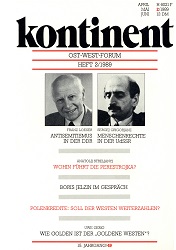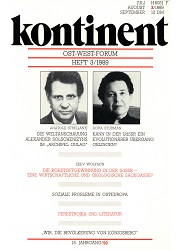
KONTINENT / КОНТИНЕНТ – Ost-West-Forum – Ausgabe 1979 / 11
Andrei Sakharov — What we all have in common. The human rights movement in the Soviet Union and in Eastern Europe. Their goals, their importance, their difficulties. // And the truth will set us free. An interview by the BBC with Alexander Solzhenitsyn // Wolfgang Leonhard — Eurocommunism: an important process of change // Kurt Marko — Pile of broken pieces of "Euro" Communism? // Viktor Nekrasow — On this side of the wall // »We all need to be rooted«. An interview with Isaac Bashevis Singer // Anna Wierzbicka — On the work of I. B. Singer // Michail Kasatschkow — Is the Soviet Union threatened with a war in the East? // Natalja Gorbanewskaja — poems // GULag archipelago today. A letter from Sosnovka. With a foreword by Andrej Sacharow // Elena Andronowa — Four days in the Egorevskaya. On and about the trial of Professor Orlow // Michail Kukobaka — Stolen Homeland // The Moscow Helsinki Group to the Polish Committee for Social Self-Defense (KSS-KOR) // Three letters from An-sky
More...
